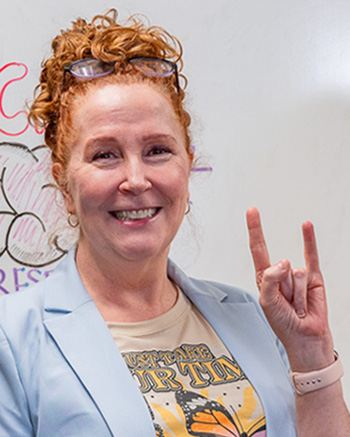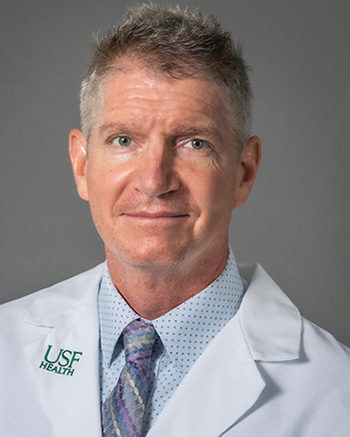By: Cassidy Delamarter, University Communications and Marketing
"Start small, win big."
As the new year begins, many of us turn to resolutions aimed at improving our health and well-being. While getting more sleep, exercise and better nutrition are some of the most common goals, they can also be challenging to maintain. USF Health researchers are sharing ways to hold yourself accountable and not give up on your resolutions this year.
Start with sleep

Christina McCrae
Christina McCrae, professor in the USF Health College of Nursing, says living healthier starts with sleep. If you choose to prioritize your sleep in 2025, you will create a domino effect of positive changes.
Inside the McCrae Sleep Research Lab, previous studies have shown that targeting negative thoughts and behaviors, such as scrolling your phone before bed, can yield significant results for improved sleep. McCrae’s cognitive behavioral sleep treatments are designed to help individuals break free from the cycles of poor sleep that undermine their physical and mental health.
“Sleep, nutrition and physical activity are the three pillars of health. Of those pillars, sleep is probably the easiest to improve and a good starting point. Sleep can impact what you want to eat and how you feel about exercising,” McCrae said.
According to McCrae, small changes in sleep habits can make a big difference, such as limiting your screen time before bed, consuming less caffeine and maintaining a consistent sleep schedule, even on the weekends.
Nutrition

Lauri Wright
Lauri Wright, associate professor in the USF Health College of Public Health, is a registered dietitian focused on preventing and treating disease through nutrition therapy. She discovered her passion for nutrition while she was a student-athlete, where she experienced first-hand the impact nutrition has on performance and wellbeing
Some of Wright’s recent work examined the food as medicine movement and its potential healing power. For those looking to improve their diet, she says there is a simple way to build healthy habits.
"Start small, win big,” Wright said. “Focus on one change at a time – like adding a veggie to lunch or swapping soda for water. Small wins build momentum and lasting habits.”
Exercise

Dr. Eric Coris
If you are planning resolutions around exercise, opt for something that you can do as consistently as possible. With consistent exercise, you lower your risk of stroke, heart attack, cancer, Parkinson’s, diabetes and Alzheimer’s according to Dr. Eric Coris, professor and chair of the Department of Family Medicine.
“I would say start slow, give yourself full permission to make the exercise tolerable and enjoyable,” Coris said. “Setting the bar too high can be discouraging and can make it too easy to bow out if you’ve had a long day and you’re tired. Gradually work towards 30 minutes of moderate aerobic exercise, five days a week, ideally with one or two days of lightweight training mixed in.”
